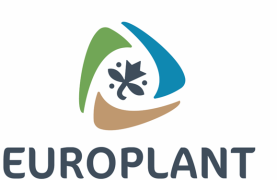Abstract
Phytophthora infestans is the most devastating pathogen of potato. Considering the increasing demand for reducing inputs of synthetic and copper-based fungicides, and regarding the emergence of novel fungicide-resistant strains, alternative control methods are a necessity. The present review describes the features of P. infestans that make it such a daunting challenge to agriculture and summarizes the current literature regarding the biocontrol of the phytopathogenic P. infestans using antagonistic microorganisms. Several studies report the evaluation of Trichoderma harzianum, Chaetomium globosum, Trichoderma viride, yeasts, and bacteria from the genera Bacillus, Pseudomonas, and Xenorhabdus as biocontrol agents in the management of potato late blight disease. Overall, the results confirmed that some biosurfactants (such as surfactin and fengycin B) produced by isolates of Bacillus and Pseudomonas bacteria have a high efficiency effect to control the sporulation and release of P. infestans zoospores reaching a rate of 100%. Besides bacterial compounds, the combination of biological control agents with each other with compost or copper at low dose was very promising in the effective control of P. infestans.















